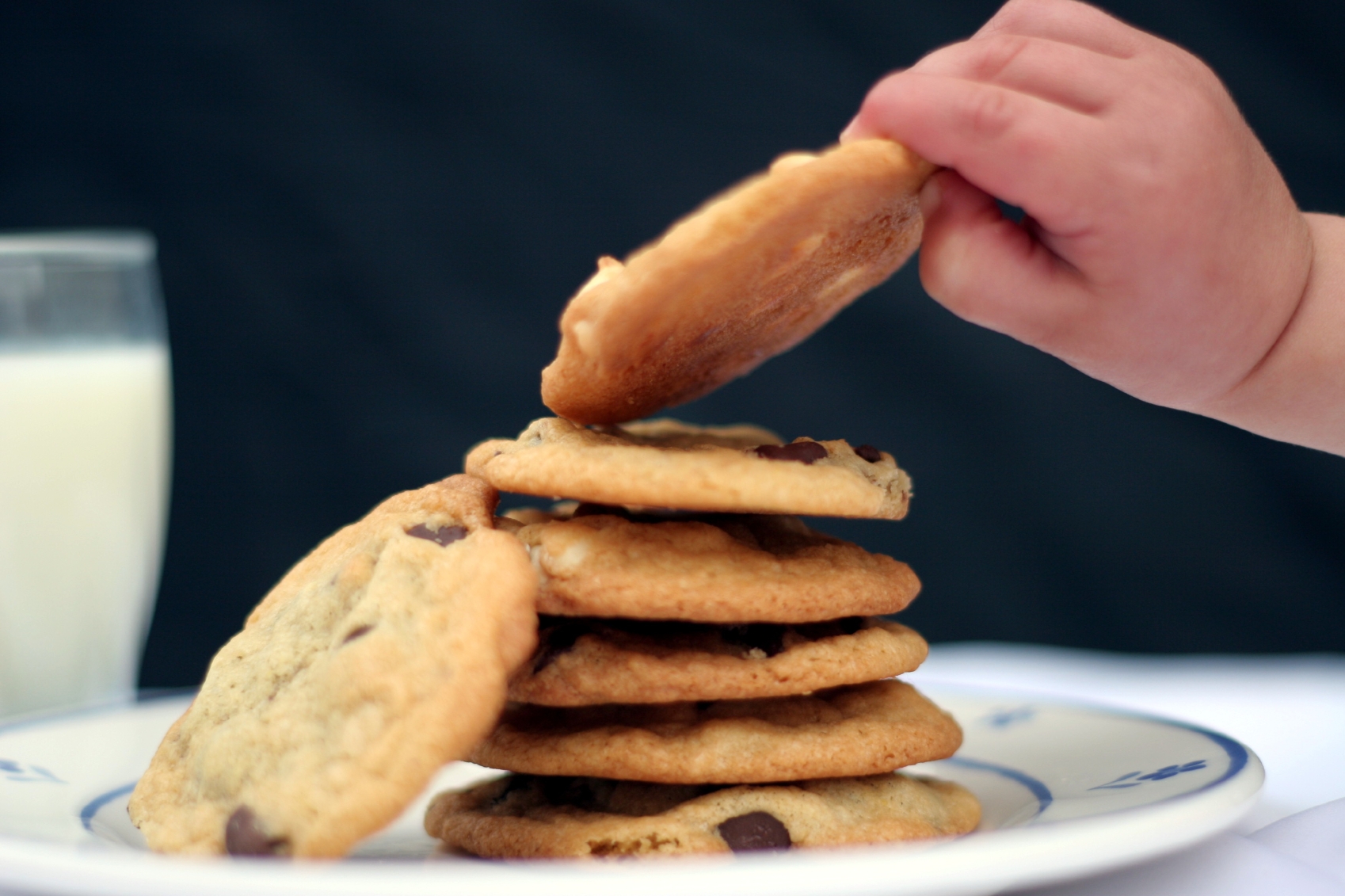I stopped forcing my toddler to eat dinner — and guess what? Nothing happened.
The only thing that changed was me


A free daily email with the biggest news stories of the day – and the best features from TheWeek.com
You are now subscribed
Your newsletter sign-up was successful
My toddler doesn't really "do" food, and I'm done worrying about it.
I've spent most of the last 18 months panicking that my daughter is nutritionally on a par with a Victorian street urchin. Some days, you can measure her consumption in teaspoons. Occasionally, she will dislocate her jaw like a python to cram in ever-larger mouthfuls of one of the seven foodstuffs she lets pass her lips. But these moments are rare, and heaven forbid we invite her to try something new. You'd have had better luck asking Genghis Khan to go easy on the pillaging.
Apart from stuffing a funnel down her neck and pouring in grain (and don't think I haven't considered it), I've tried every toddler eating strategy known to parent-kind. Nothing has worked.
The Week
Escape your echo chamber. Get the facts behind the news, plus analysis from multiple perspectives.

Sign up for The Week's Free Newsletters
From our morning news briefing to a weekly Good News Newsletter, get the best of The Week delivered directly to your inbox.
From our morning news briefing to a weekly Good News Newsletter, get the best of The Week delivered directly to your inbox.
Astonishingly, my daughter continues to gain weight. She's also bright-eyed, full of beans (not that she's ever eaten beans), and, ahem, lightens her load in spectacular fashion several times a day. It's mathematical magic: What's going in cannot possibly equal what's coming out. Or perhaps it's simply the case that the caloric and nutritional needs of young children are overstated by the pros to cajole parents into making an effort to feed their kids well. Fair enough. But a very limited diet, while tedious, isn't necessarily a nutritional deal-breaker. Food fortification — the FDA requires the enrichment of flour with certain vitamins and iron, and the addition of vitamin A to low and non-fat milk — ensures that America's fussiest kids don't miss out on the essentials.
What's perhaps more alarming than the fact that millions of children reject the perfect diet is that hoards of moronic parents like me try to derive status from their child's food intake. As a paid up New York foodie, my ego demanded that my offspring be a super-eater, even before she was born. Suspecting this might not come naturally, I was prepared to work for it. While pregnant I seasoned with every spice on the rack and ate any weird foods that weren't on the might-kill-your-unborn-child list — all because I'd read somewhere that a fetus can taste what the mother eats via the amniotic fluid, which they start swallowing early in the second trimester.
When my kid started solids at around five months, I'd cunningly lace her food with everything from cumin and lemon juice to star anise to prep her taste buds for an exciting life. For a few blissful months she guzzled the lot. "Oh we are so good at this," I thought. Then, at around 11 months old, she stopped eating all the cool stuff and demanded Cheerios, yogurt, and raspberries, and not much else.
I had so desperately wanted to be one of those moms whose kid would steal sushi off her plate and order from the grownup menu in restaurants. These days, that's looking unlikely. When we eat out, I'm just grateful if she'll nibble bread or a French fry.
A free daily email with the biggest news stories of the day – and the best features from TheWeek.com
Even getting her to eat a sandwich took months of prompting and pleading. There was one especially bleak period last year when my daughter adopted what I dubbed the Squirrel Diet: nuts and berries for breakfast, lunch, and dinner. And just so you don't mistake this for a sideways boast, these "meals" were often topped off with cake and cookies. So very many cookies, which I started giving her on the days she wouldn't eat at all, just so she'd have something in her belly. That probably wasn't my smartest move, but, my God, sugar is incredible. Nothing else can placate quite like it, or halt a public meltdown in its tracks.
But with every sweet treat came the guilt: mine, not hers. (My daughter was, of course, delighted with the situation.) But feeling constantly sorry, shamefaced, and anxious is no way to live your life — and these are dreadful emotions to project onto a child. So a few months ago, I made the decision to quit my constant self-reproaching, and I think maybe I'm doing a better job at parenting because of it.
Crucially, I've also stopped asking for — or listening to — advice from other parents. I now know that, despite what they might claim, people whose children eat well haven't got super powers. They just got lucky. And in restaurants, I no longer feel self-conscious as I stuff her little paws with boring food we brought from home.
I know all too well that my toddler's diet is far from ideal, and perhaps this will always be the case. But I'm determined to stay calm. Naturally, I still have fretful moments, but they're becoming less and less frequent. I still do all the stuff you're supposed to, like offering her different foods frequently, which she resolutely rejects. And I still get quietly, hypocritically irked if someone who isn't pre-approved gives her junk.
But if she misses a meal — as she does once a day on average — it's fine. We both know it won't kill her, and there's another one coming in a few hours. No big deal. And if she asks for it, I'll probably let her eat cake.
